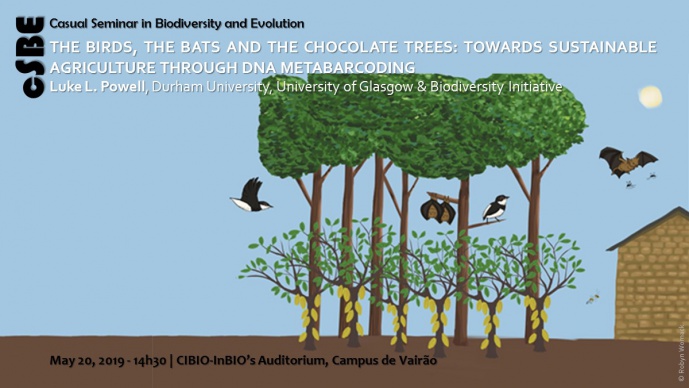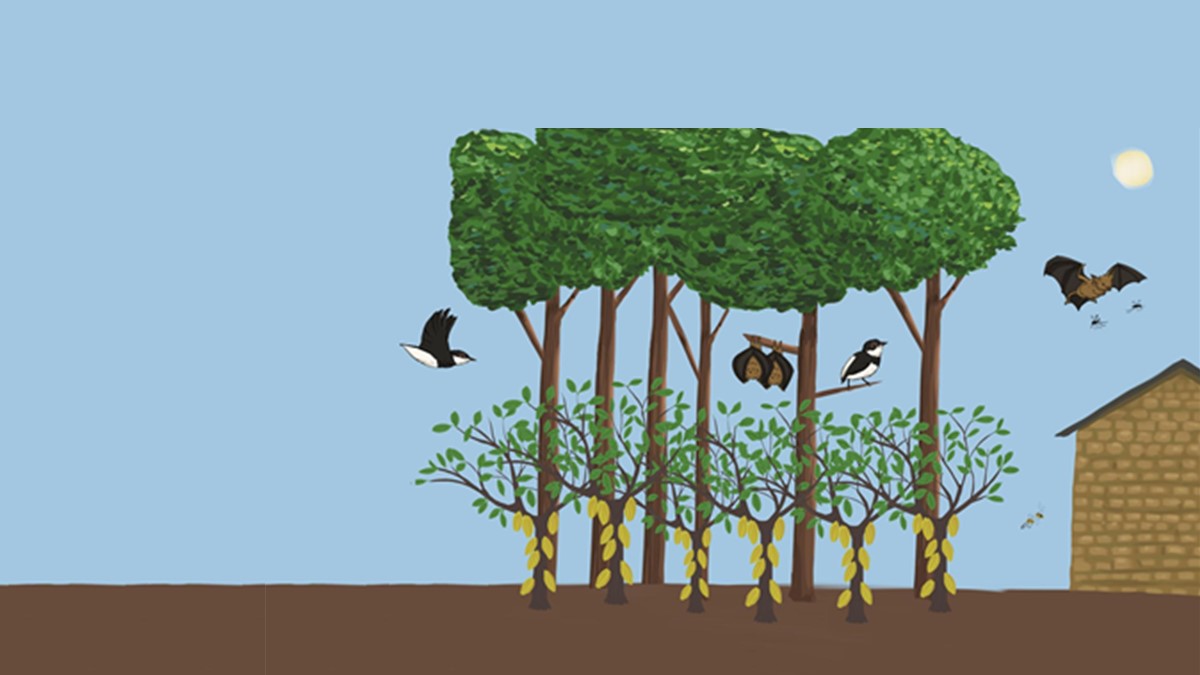THE BIRDS, THE BATS AND THE CHOCOLATE TREES: TOWARDS SUSTAINABLE AGRICULTURE THROUGH DNA METABARCODING

CASUAL SEMINAR IN BIODIVERSITY AND EVOLUTION

Humans destroy huge swaths of tropical rainforest every year—mostly driven by agricultural expansion. Cacao, which fuels the multi-billion dollar chocolate market, is grown primarily in Sub-Saharan Africa on smallholder farms. Fortunately, cacao is typically not as destructive as other crops as it can be grown under a canopy of rainforest trees. However, very little is known about sustainable management of African cacao farms—either for the benefit of agricultural production or biodiversity. Here we use a novel genetics technique (DNA metabarcoding) to sequence arthropod and plant DNA from bird and bat fecal samples collected in cacao farms. The objectives of our barcoding/network analysis effort are to understand:
1) The shade tree species that maximize biodiversity (“keystone species”); and
2) The birds, bats and shade trees that maximize cacao productivity through reduction of pest insects (“ecosystem service species”)
We captured birds and bats in 16 central African cacao farms over two seasons, conducting DNA metabarcoding on 220 fecal samples from insectivorous predators. We were able to recover arthropod DNA barcodes from nearly 80% of these samples, and to recover plant DNA from nearly 80% as well. This DNA recovery allowed us to reconstruct large portions of a tri-tropic food web including detailed connections among thousands of organisms. We unexpectedly found that 83% of bats consumed Anopheles mosquitos - the genus that is the main vector of human malaria. We are currently optimizing lab protocols and building reference barcode libraries for cocoa pests and Anopheles mosquitos. By understanding the cacao food web as mapped by the framework we outline here, we can make meaningful management recommendations to farmers that will a result in a biodiverse community that provides ecosystem services that reduce both cocoa pests and disease carrying mosquitos.
Luke is a junior research fellow at Durham University Department of Biosciences, and a Marie Curie Fellow at University of Glasgow. He is the director of Biodiversity Initiative, which he co-founded in 2013 to advance conservation, ecological research and capacity building in tropical rainforests -- particularly the Afrotropics. He received his Masters at the University of Maine, where he studied ecology and conservation of the rare and declining Rusty Blackbird, and received his PhD at Louisiana State University, where he studied the effects of rainforest disturbance on birds of the Brazilian Amazon. He then worked as an National Science Foundation postdoctoral fellow at the Smithsonian Migratory Bird Center, where he focused on interspecific competition between migrant and resident songbirds. Lately he has been focusing on Central Africa, where his ONG, Biodiversity Initiative, has a camera-trapping project and a bird ringing project in Equatorial Guinea. His main project, in Cameroon, is designed to use birds and bats to explore the tradeoffs between biodiversity and cocoa production. He has been working in tropical rainforests since 2005.
[Host: Hugo Rebelo, Bat Ecology]
Image credits: Robyn Womack